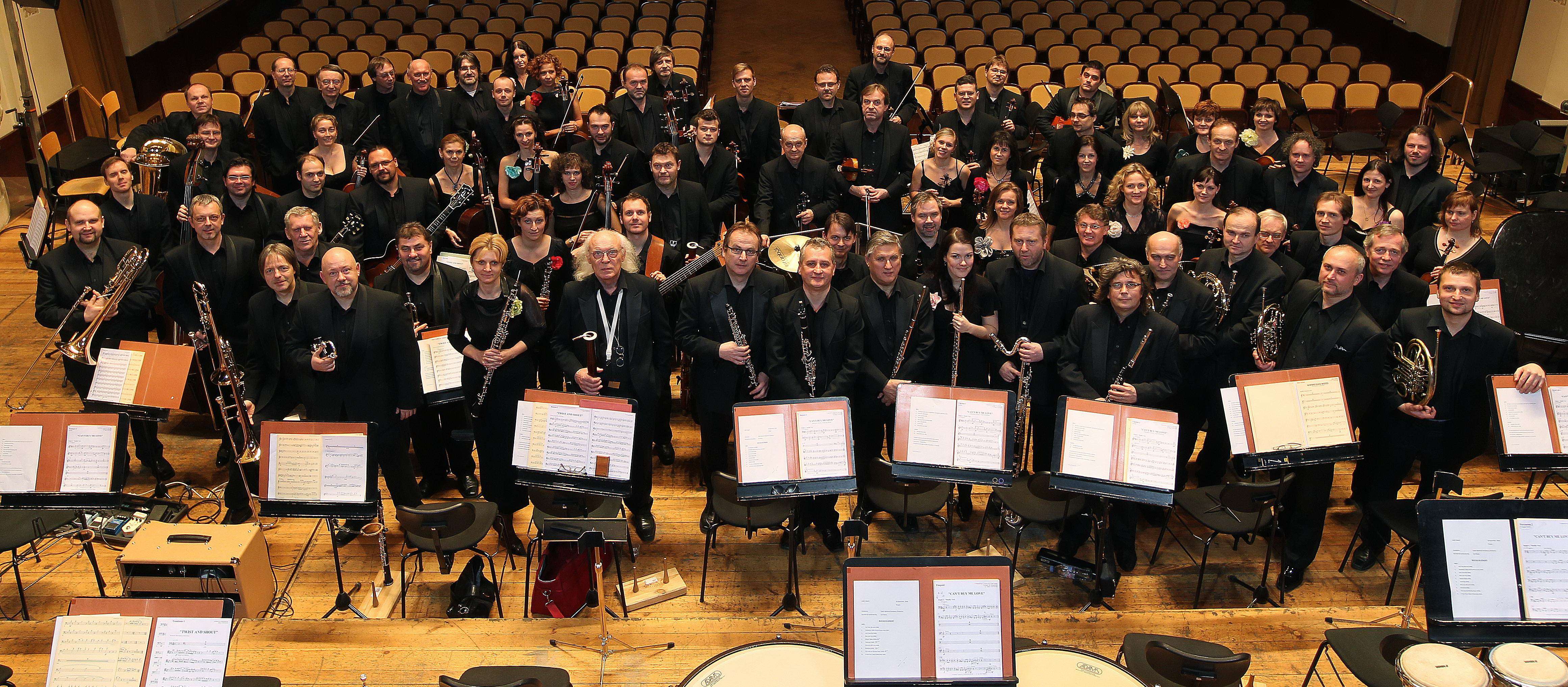|
Back
An Evening of Enjoyment and Astonishment Cambridge
The Cambridge Corn Exchange
03/02/2011 -
Edvard Grieg: Excerpts from Peer Gynt Suites, op. 46 & 55
Sergei Rachmaninov: Piano Concerto No. 3 in D minor, op. 30
Antonín Dvorák: Symphony No. 7 in D minor, op. 70
Rustem Hayroudinoff (piano)
Czech National Symphony Orchestra, Terje Mikkelsen (conductor)

The Czech National Symphony Orchestra (Courtesy of CNSO)
With a set of well-chosen program, the Czech National Symphony Orchestra’s concert on Wednesday trenchantly exemplified the finest side of their competence. Picking some of the most popular excerpts from the two Suites, Norwegian conductor Mikkelsen showed a native understanding on Grieg’s Peer Gynt. His very rhetoric rendition expressively depicted the beauty of Grieg’s musical delineations – one would have known what the music is about even without knowing the title and program of each excerpt. The enchanting musical narration, together with CNSO’s penetrating strings and lucid woodwinds, reminded me of some of the most gorgeous sceneries of Smetana’s symphonic poems.
On the contrary, Rachmaninov’s Third Piano Concerto that followed came across as an astonishment. It was astonishing on two counts, both stemmed from the way the soloist read the piece. However, a Russian pianist who graduated from Moscow Conservatory, pianist Hayroudinoff played with a transparent and nimble tone, offering the otherwise profound work with a rather light-hearted and fluent character, which somehow foreshadowed the style of the French piano school. He imbued the music with extra lyricism and delicacy; but the price he paid was the lack of emotional profundity that we usually find in some well-known interpretations, particularly those by legendary Russian pianists. For ears attuned to the music’s trademark features – heavy pounding chords, sparkling octave runs, weighty tone color, Mr. Hayroudinoff’s reading might have sounded rather plainspoken.
What was astonishing as well was his deficiency of technical mastery, the respect which most Russian pianists are proud of. Rachmaninov’s piano music has taken the central role of Mr. Hayroudinoff’s repertoire both in studio and on stage, and the Third Piano Concerto should have been a showpiece for him throughout his career. But his frequent technical mishaps, together with an unsatisfactory collaboration with the orchestra, made people doubtful about the quality and quantity of both his preparation and their rehearsal. The "breathtaking virtuosity" that he quoted in his biography could be found nowhere. The performance as a whole fell far short of expectation. Fortunately, he saved some of his reputation as a Russian Rachmaninov interpreter by playing cogently one the composer’s preludes as an encore.
The rendition of Dvorák’s Seventh Symphony in the second half tellingly exemplified that one of the best orchestras in the Czech Republic is natively attuned to their "own" music. All four movements went by with superfine treatment of every musical detail and a lucid and balanced texture. It was brimmed with charm and enjoyment.
CNSO’s Website
Rustem Hayroudinoff’s Website
Danny Kim-Nam Hui
|